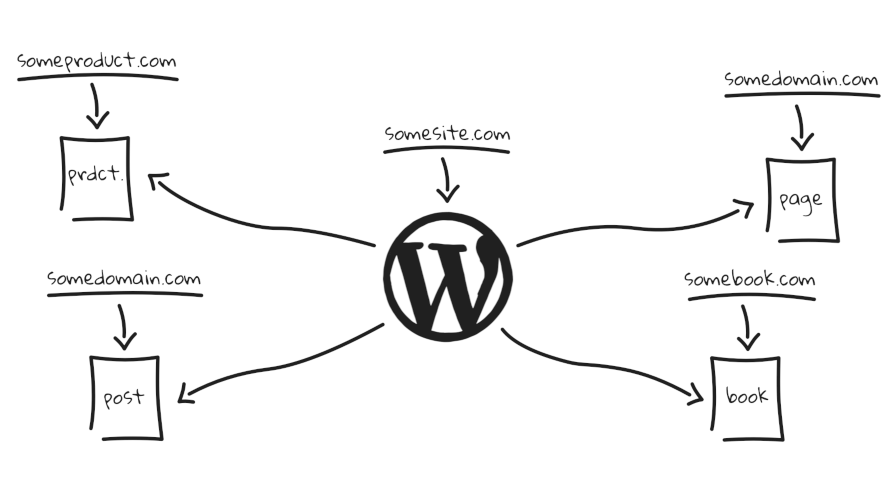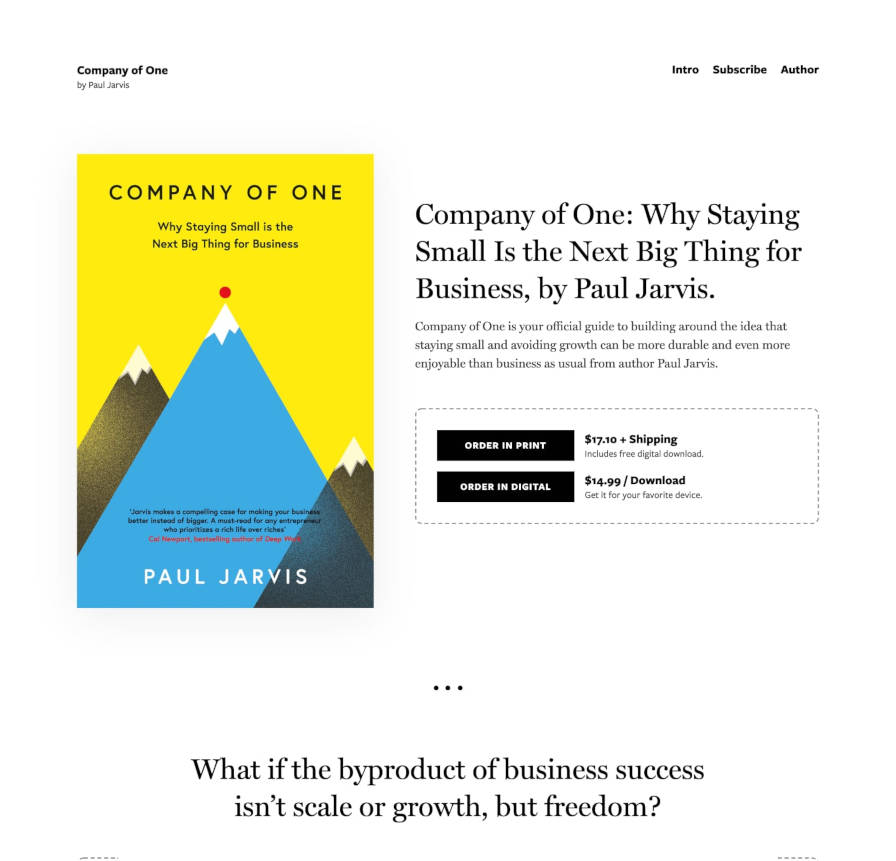
Phil Kurth and Jason Schuller launched a new WordPress product named Landing Kit today. The plugin allows end-users to map a domain name to any post, page, or custom post type entry. It includes other features such as SSL support and URL redirecting. More features like custom templates and Gutenberg blocks are on the way.
Kurth is the director and WordPress product developer at Hookturn.io, a premium WordPress plugin company, and runs Awesome ACF, a community hub around the Advanced Custom Fields plugin. Schuller has several ongoing projects. He runs RIVYT, a website for video creators to share their work. In October, he launched DSKO, which is a discovery network built on WordPress for creators and brands.
Leeflets, a project Schuller created for building single-page websites, served as the catalyst for the Landing Kit project. The plugin brings similar functionality to any WordPress install.
Often, WordPress is overkill for single-page sites. The platform is ideal for larger sites and applications. For people who need to manage multiple single-page sites, Landing Kit could be a blessing. By setting up a single WordPress install with the plugin active, users can map any domain to any post or page. It also works with custom post types. This keeps site management limited to a single admin interface and point of maintenance.
The plugin should not be confused with domain-mapping plugins built for multisite. While it will work on multisite, the intent is not to map domains to subsites in a network. Instead, it is meant to specifically map domains to single posts or pages on single-site installations.
The plugin has two pricing tiers. The lower tier costs $59 per year for support and updates on up to three installations. It will also include access to a single page template in the near future. The larger pricing tier at $159 per year offers support and updates for unlimited installations and will provide access to all templates as they become available.
Landing Kit is Schuller’s first foray in the WordPress product market space since selling his former WordPress theme business, Press75, in 2014. His return is already making a splash and seems to be a welcome addition to the ecosystem given the feedback on his Twitter announcement.
“It was never a goal of mine to jump back in, but sometimes these things just happen naturally,” said Schuller. “I’ve consistently used WordPress as a platform to iterate on ideas, and with each new build I end up creating unique functionality to solve specific problems. Landing Kit is the result of one of those problems I had the solve while creating Leeflets.”
Kurth was brought in to work on the project because of his experience building WordPress plugins. He described the first version as not having many technical challenges because they had a working prototype to build from. “The most difficult part was thinking across multiple contexts and maintaining a clear picture of what would be happening across multiple domains at any time,” he said. “I expect more difficult challenges as we start to move deeper into feature territory as we’ll have bigger decisions to make and new technical hurdles to face, particularly when we start exploring remote block/template libraries.”
Plugin Features

Version 1.0 of the plugin keeps things simple, which is a signature of Schuller’s past work. The plugin has a domain management screen. It provides a convenient location to edit and configure all mapped domains for the installation. Domain mapping is also available through the post-editing screen.
The SSL options allow users to serve individual domains over HTTPS or to do so on a global basis. The plugin also makes it easy to decide whether a post or page should be available via the main website or if requests to the single view should be 301 redirected to the mapped domain.
There are some technical requirements to make use of the plugin. Users must be on a host with the ability to add alias or add-on domains, have a dedicated IP address for their website, and be running WordPress 5.0 or above. End-users should also be familiar with managing DNS records, specifically A-Records, with their web host. These requirements are necessary to make sure domains are pointing to the correct location. These are common features and available through many hosts. Each host should have specific instructions for working with these features.
The big value-add will be the plugin’s custom templates and its upcoming Gutenberg blocks. These will allow users to quickly build out single-page sites that look and feel different from the active theme for their WordPress installation.
“In line with the idea of complete niche templates (essentially bundled blocks), it makes sense to break that concept down a level in form of niche specific blocks you could pick and choose to create your own landing pages with a bit more freedom,” said Schuller. “There’s so much potential with Gutenberg to get creative, especially when you’re thinking specifically about landing pages and what creators might need to achieve a specific goal.”
Kurth and Schuller plan to release templates aimed at specific product niches. “I’m hoping to get the first template out the door within the next few weeks,” said Schuller on Twitter. The concept could be interesting as templates could essentially serve as “mini themes.” If the plugin gains enough traction and a large user base, there is potential for a larger marketplace to form around single-page template designs.
Take a video tour of the plugin:
Schuller said that they are kicking around some other feature ideas for the future. Nothing is set in stone yet. “People have also expressed interest in a Leeflets-style front-end experience for managing pages, which would essentially make Landing Kit a SaaS in a box,” he said. “I’m not sure if that’s something we’ll explore in the near term, but an option at the very least.”
Update – January 8, 2020: Additional quotes from Landing Kit creators added.
There’s already a free version for this: https://wordpress.org/plugins/multiple-domain-mapping-on-single-site/
This one might be a bit more polished, but it basically does the same thing.
Just putting this out there :)